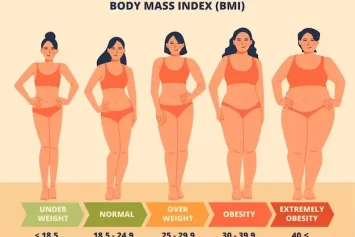
Introduction : Depression in Young Adults in India
In a thought-provoking article by Ritu Mehrotra, the concerning surge of Depression in Young Adults in India takes center stage. Let’s delve into the intricacies of this issue while giving due credit to the original author.
In a thought-provoking article by Ritu Mehrotra, the concerning surge of Depression in Young Adults in India takes center stage. Let’s delve into the intricacies of this issue while giving due credit to the original author.
Understanding the Scope:
The United Nations defines youth as individuals between 15 to 24 years, constituting 10% of India’s population. Shockingly, depression rates among this demographic are on the rise, with prevalence ranging from 31% to 57%, as highlighted by the World Health Organization and Unicef.
Factors Contributing to the Rise:
Differences in reported prevalence can be attributed to varied assessment methods and cultural influences. Academic pressure, parental expectations, social media, changing societal norms, and the stigma surrounding mental health all play pivotal roles.
Academic Pressure:
The relentless pursuit of academic success, ingrained in Indian culture, has a dark side. The pressure to secure spots in prestigious universities and high-paying jobs can lead to overwhelming stress, anxiety, and ultimately, depression.
Social Media Impact:
Endless scrolling through social media platforms exacerbates feelings of inadequacy among young adults. This constant comparison to others breeds low self-esteem, loneliness, and contributes significantly to the spike in depression rates.
Societal Norms:
The clash between traditional expectations and the growing emphasis on individualism adds another layer to this complex issue. Young people navigating this paradox often face frustration and depression as a result.
Pandemic’s Role:
The COVID-19 pandemic has further intensified mental health challenges for young people worldwide, including India. Disrupted routines, social isolation, and uncertainty have heightened stress, anxiety, and depression.
Call to Action:
Depression is a serious mental health condition that demands attention. Awareness, education, and destigmatization are crucial, especially given that only a little over 40% of young adults in India believe in seeking help for mental health problems.
The Way Forward:
Ritu Mehrotra emphasizes the importance of continued research on depression in youth to understand its complexities. Governments, healthcare providers, and communities must prioritize mental health, ensuring accessible and affordable services for early intervention and support.
Conclusion:
As we credit Ritu Mehrotra for shedding light on this critical issue, let’s collectively advocate for mental health awareness and a compassionate approach to supporting the well-being of young adults in India. Together, we can make a difference.
Understanding the Scope:
The United Nations defines youth as individuals between 15 to 24 years, constituting 10% of India’s population. Shockingly, depression rates among this demographic are on the rise, with prevalence ranging from 31% to 57%, as highlighted by the World Health Organization and Unicef.
Factors Contributing to the Rise:
Differences in reported prevalence can be attributed to varied assessment methods and cultural influences. Academic pressure, parental expectations, social media, changing societal norms, and the stigma surrounding mental health all play pivotal roles.
Academic Pressure:
The relentless pursuit of academic success, ingrained in Indian culture, has a dark side. The pressure to secure spots in prestigious universities and high-paying jobs can lead to overwhelming stress, anxiety, and ultimately, depression.
Social Media Impact:
Endless scrolling through social media platforms exacerbates feelings of inadequacy among young adults. This constant comparison to others breeds low self-esteem, loneliness, and contributes significantly to the spike in depression rates.
Societal Norms:
The clash between traditional expectations and the growing emphasis on individualism adds another layer to this complex issue. Young people navigating this paradox often face frustration and depression as a result.
Pandemic’s Role:
The COVID-19 pandemic has further intensified mental health challenges for young people worldwide, including India. Disrupted routines, social isolation, and uncertainty have heightened stress, anxiety, and depression.
Call to Action:
Depression is a serious mental health condition that demands attention. Awareness, education, and destigmatization are crucial, especially given that only a little over 40% of young adults in India believe in seeking help for mental health problems.
The Way Forward:
Ritu Mehrotra emphasizes the importance of continued research on depression in youth to understand its complexities. Governments, healthcare providers, and communities must prioritize mental health, ensuring accessible and affordable services for early intervention and support.
Conclusion:
As we credit Ritu Mehrotra for shedding light on this critical issue, let’s collectively advocate for mental health awareness and a compassionate approach to supporting the well-being of young adults in India. Together, we can make a difference.



